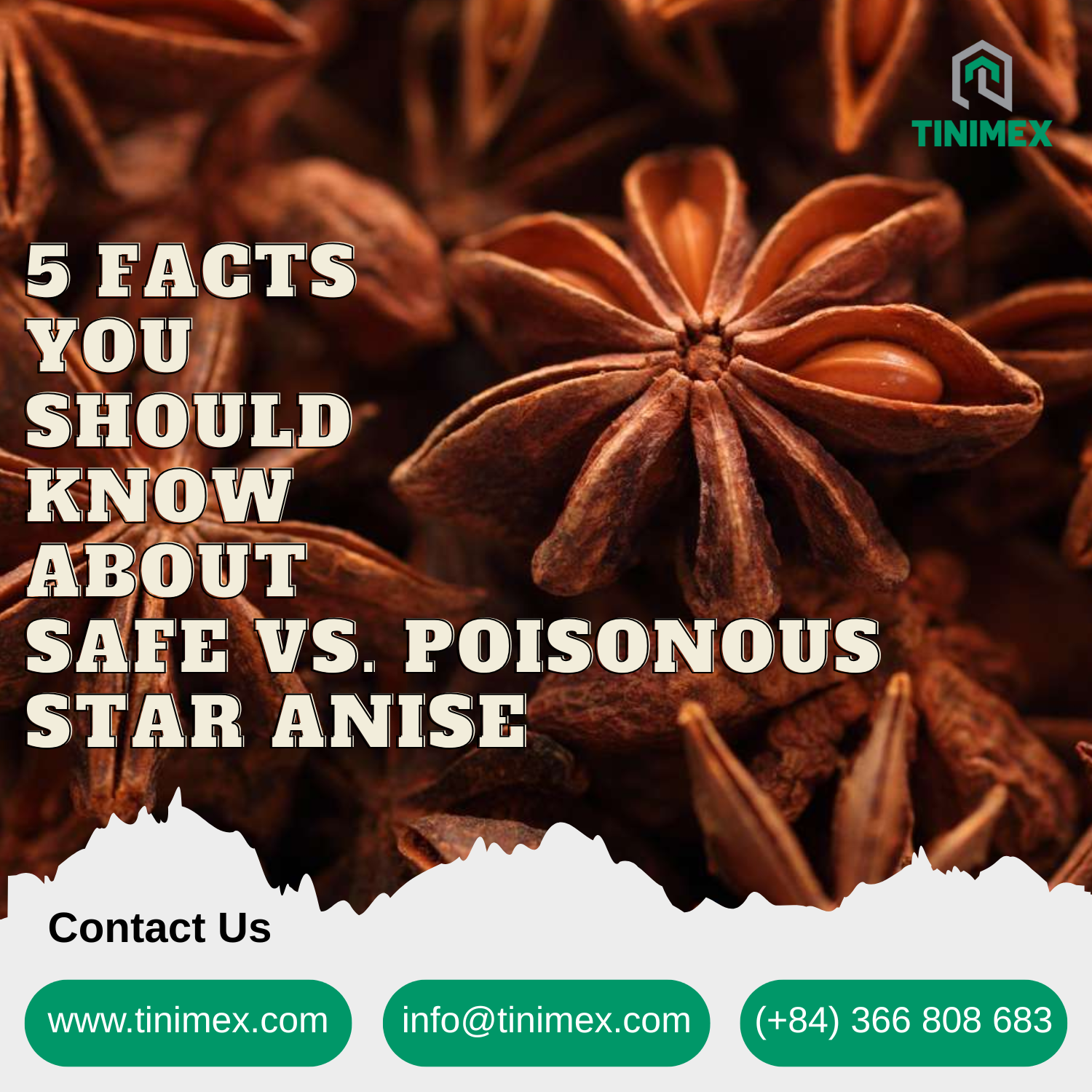Star Anise Surge: 5 Proven Benefits in Modern Wellness
Certification for Profit: When Compliance Becomes a Marketing Strategy
Organic certification has evolved into a powerful marketing tool in the star anise industry, enabling products to command price premiums of 20–40%. However, this financial incentive has also given rise to practices that prioritize appearances over genuine compliance, undermining the integrity of the organic label.
One of the most troubling issues is the rise of fake or lax certifications. In some countries, certification bodies operate without rigorous auditing standards, allowing exporters to obtain organic certificates without undergoing thorough inspections. This opens the door for unscrupulous traders to label conventional products as organic, misleading consumers and damaging the reputation of authentic organic producers.
Beyond fraudulent documentation, some star anise farms engage in a practice known as “paper compliance.” These farms maintain a small organic-certified plot for inspection purposes while operating much larger conventional fields that supply the bulk of their harvest. Such deceptive practices not only violate organic principles but also create an unfair playing field for genuinely compliant farmers who invest in sustainable, organic cultivation.
International loopholes further complicate the situation. Organic standards vary widely between countries, creating opportunities for manipulation. For instance, a batch of star anise that fails to meet the stringent organic criteria of the European Union could still be sold in a less-regulated market under a different certification scheme. This inconsistency not only confuses consumers but also enables unethical producers to exploit regulatory gaps.
The consequences of these practices are severe. They erode consumer trust in organic products, damage the reputation of the star anise industry, and place ethically compliant producers at a competitive disadvantage. Without stronger oversight, standardized international regulations, and greater transparency in the certification process, the organic label risks becoming a hollow marketing tool rather than a genuine mark of quality and sustainability.

1. Immune Support: A Natural Antiviral Powerhouse
Star anise has earned a global reputation as a potent natural remedy for immune support, primarily due to its high concentration of shikimic acid. This bioactive compound is the primary ingredient used to produce oseltamivir, better known as Tamiflu—one of the world’s leading antiviral medications. Scientific research has shown that shikimic acid, especially when combined with other polyphenols found in Illicium verum, demonstrates significant antiviral properties. This has positioned star anise as a strategic botanical, particularly during flu seasons and global health crises.
Beyond its pharmaceutical applications, star anise is widely used in traditional herbal remedies to support respiratory health. Naturopaths frequently recommend it as an additive in herbal teas or syrups, where its aromatic oils can help soothe sore throats, clear nasal passages, and support overall respiratory function. The rising interest in natural immunity boosters has further amplified the demand for star anise, often creating supply chain challenges during health emergencies. As consumers become more proactive about immune health, star anise remains a natural, plant-based option that bridges the gap between traditional healing and modern medicine.
2. Digestive Aid: Soothing the Gut Naturally
Star anise has been a trusted digestive remedy in traditional Chinese and Ayurvedic medicine for centuries. Its efficacy in promoting digestive health is largely due to anethole, a natural compound responsible for its distinct licorice-like flavor. Anethole possesses carminative and antispasmodic properties, which help relax gastrointestinal muscles, reduce cramps, and alleviate bloating. This makes star anise an excellent natural solution for individuals experiencing indigestion, gas, or abdominal discomfort.
The spice is most commonly consumed as an after-meal tea, where it supports smoother digestion and reduces the feeling of heaviness. In some cultures, it is also used in digestive tinctures, often combined with other soothing herbs like fennel, peppermint, and ginger. As awareness of gut health continues to grow, star anise offers a gentle, plant-based alternative to synthetic antacids and laxatives. Its clean-label appeal makes it a popular choice for consumers seeking natural remedies without artificial additives.
3. Antioxidant Protection: Fighting Free Radicals
Oxidative stress is a leading cause of cellular damage, contributing to aging and the development of chronic diseases. Star anise stands out as a potent natural source of antioxidants, with studies confirming its high phenolic content and significant antioxidant activity. These antioxidants help neutralize free radicals, protecting cells from oxidative damage and supporting overall cellular health.
Star anise’s antioxidant properties have also made it a valuable ingredient in nutricosmetics—beauty supplements that promote skin health and youthfulness from within. Consuming star anise extract as part of a wellness routine may help improve skin texture, reduce signs of aging, and promote a radiant complexion. In addition to its internal benefits, star anise extract is increasingly being explored in topical skincare products, where it can help soothe the skin, combat inflammation, and provide anti-aging benefits. As the wellness industry continues to prioritize longevity and youth, star anise’s dual benefits—internal and external—make it a star ingredient.
4. Antibacterial and Antifungal Activity
Star anise is not only a natural antiviral but also a powerful antimicrobial agent. Research has demonstrated its effectiveness against a range of bacteria and fungi, including Escherichia coli, Candida albicans, and Staphylococcus aureus. These antimicrobial properties are largely attributed to the spice’s essential oils, which contain potent compounds like anethole, linalool, and eugenol.
Such broad-spectrum antimicrobial activity makes star anise a valuable natural preservative for food and cosmetic products. Companies are increasingly exploring its potential as a clean-label preservative, appealing to consumers who prefer chemical-free, natural options. In traditional medicine, star anise has long been used to treat minor infections. It is commonly applied as a poultice to minor skin infections or consumed as a decoction for soothing sore throats and addressing mild respiratory infections. As concerns over antibiotic resistance continue to rise, star anise offers a promising, plant-based alternative for combating harmful microbes.
5. Stress Reduction and Sleep Support
Star anise is not just a remedy for physical health—it also supports mental wellness through its calming properties. The spice’s sweet, warm aroma has a soothing effect on the nervous system, making it a popular ingredient in aromatherapy blends and calming herbal teas. Traditional healers have long recommended star anise for individuals struggling with anxiety, restlessness, or insomnia. When brewed as a tea, star anise’s gentle aroma helps ease tension, creating a relaxing pre-sleep ritual.
Emerging research suggests that certain compounds in star anise may interact with neurotransmitter pathways, offering potential mood-enhancing benefits. While more studies are needed to fully understand these effects, the spice is already being used in essential oil blends designed for stress relief, as well as in diffusers that promote a tranquil environment.
For those who prefer natural sleep aids, star anise offers a non-habit-forming option that aligns with clean-label trends. Whether consumed as a bedtime tea, diffused in essential oil form, or incorporated into calming balms, star anise provides a gentle, natural way to promote relaxation and better sleep.
Conclusion: A Call for Accountability in the Organic Star Anise Trade
The organic movement within the star anise industry offers immense potential, promising sustainability, improved consumer health, and ethical farming practices. However, this potential is jeopardized by critical vulnerabilities that, if ignored, could result in scandals, product recalls, and a severe loss of public trust.
To protect both consumer safety and the integrity of the market, all stakeholders—from farmers and exporters to processors and regulatory bodies—must commit to a higher standard of accountability. This begins with adopting advanced species verification techniques, such as chemical fingerprinting and DNA barcoding, ensuring that only authentic Illicium verum is traded under the organic label. Additionally, robust third-party testing must extend beyond simple pesticide screening to detect other contaminants that could compromise product safety.
Equally important is the establishment of transparent certification processes with harmonized international standards, providing consumers with confidence that they are purchasing genuine, high-quality organic star anise.
By fostering a culture of accountability, traceability, and unwavering commitment to quality, the star anise industry can continue to flourish in the organic era—safeguarding its reputation and delivering on the true promise of organic integrity.
Our contact:
Dc: 4th Flr., 40 Ngo Gia Tu Str., Duc Giang Ward, Long Bien Dist., Ha Noi, Viet Nam
Hotline: (+84) 366 808 683
Mail: info@tinimex.com
Website: www.tinimex.com





